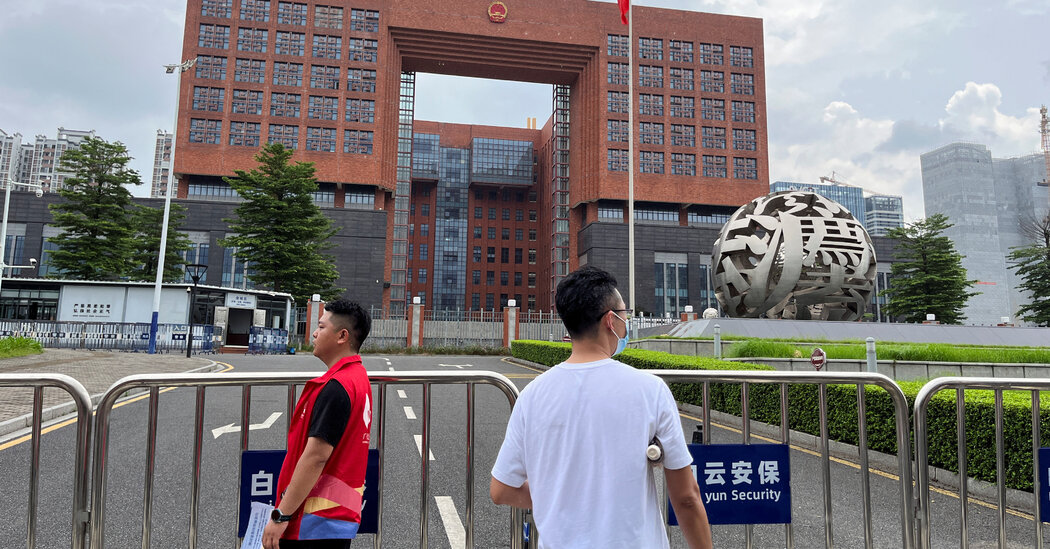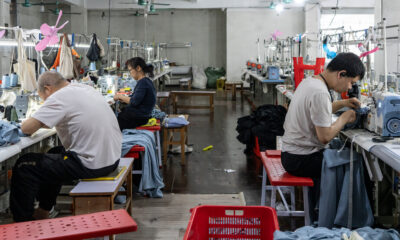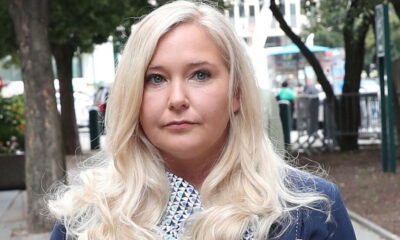Breaking News
Chinese Activists Who Gave #MeToo Victims a Voice Are Found Guilty

A court in southern China has sentenced a prominent feminist journalist to five years in prison for endangering national security, while a labor activist received a three-year and six-month sentence for the same charge. The verdict, handed down by the Guangzhou Intermediate People’s Court, marks another blow to civil society in Beijing.
Huang Xueqin and Wang Jianbing were found guilty of organizing discussions, supporting other activists, and receiving overseas training. The severity of the charges and sentences, confirmed by Reporters Without Borders and the Committee to Protect Journalists, highlights the diminishing space for independent discourse on social issues in China.
Legal experts have noted that the harsh actions taken against Ms. Huang and Mr. Wang demonstrate China’s almost zero-tolerance approach to civil society activism. Thomas Kellogg, the executive director of the Georgetown Center for Asian Law, described the case as a clear example of this trend.
Huang, a former independent journalist, played a key role in China’s #MeToo movement by assisting women in reporting cases of sexual harassment. She later traveled to Hong Kong to document antigovernment protests. Wang, on the other hand, was known for his activism on behalf of workers and individuals with disabilities, as well as supporting #MeToo victims.
Both Huang and Wang were arrested in 2021 and endured a lengthy two-year pretrial detention. The trial, which took place last September and lasted only a day, resulted in a nine-month delay in the issuance of the verdict, exceeding China’s legal timeline for such cases.
The charge of “inciting subversion of the state” underlines the government’s increasingly aggressive efforts to suppress discussions on topics like women’s rights and labor issues. Yaqiu Wang, the research director for Hong Kong, China, and Taiwan at Freedom House, noted the shift in the government’s approach to previously tolerated discussions on sensitive issues.
Details of the case remain undisclosed to the public, but legal documents related to it have been shared on a GitHub webpage by supporters and verified by Chinese Human Rights Defenders. The indictment against Huang and Wang cited actions such as hosting social gatherings and participating in online courses on nonviolent movements as part of the grounds for the charges.
Huang’s involvement in the #MeToo movement shed light on the prevalence of sexual harassment in Chinese society, leading to increased government scrutiny and censorship of feminist activism. The crackdown on activists like Huang and Wang underscores the broader suppression of dissenting voices in China.
Wang focused on supporting laborers with occupational diseases and disabilities, providing education and legal assistance to marginalized communities. Under Xi Jinping’s leadership since 2012, the Chinese government has targeted activists, lawyers, and intellectuals advocating for political rights, resulting in numerous detentions and harsh sentences.
The ruling against Huang and Wang reflects an expanded definition of threats to public order, with the government interpreting activities aimed at supporting victims and marginalized groups as subversive. The authorities’ actions, including the prolonged pretrial detention and lack of access to legal representation, raise concerns about the erosion of civil liberties in China.
The arrest and prosecution of Huang and Wang signify a broader crackdown on civil society activism in China, where even mild forms of dissent are met with severe punishment. The government’s broad interpretation of national security threats has led to the targeting of individuals advocating for marginalized communities, further restricting freedom of expression and assembly.
-

 Destination8 months ago
Destination8 months agoSingapore Airlines CEO set to join board of Air India, BA News, BA
-

 Breaking News10 months ago
Breaking News10 months agoCroatia to reintroduce compulsory military draft as regional tensions soar
-

 Gadgets3 months ago
Gadgets3 months agoSupernatural Season 16 Revival News, Cast, Plot and Release Date
-

 Tech News12 months ago
Tech News12 months agoBangladeshi police agents accused of selling citizens’ personal information on Telegram
-

 Productivity11 months ago
Productivity11 months agoHow Your Contact Center Can Become A Customer Engagement Center
-

 Gadgets3 weeks ago
Gadgets3 weeks agoFallout Season 2 Potential Release Date, Cast, Plot and News
-

 Breaking News10 months ago
Breaking News10 months agoBangladesh crisis: Refaat Ahmed sworn in as Bangladesh’s new chief justice
-

 Toys12 months ago
Toys12 months ago15 of the Best Trike & Tricycles Mums Recommend























